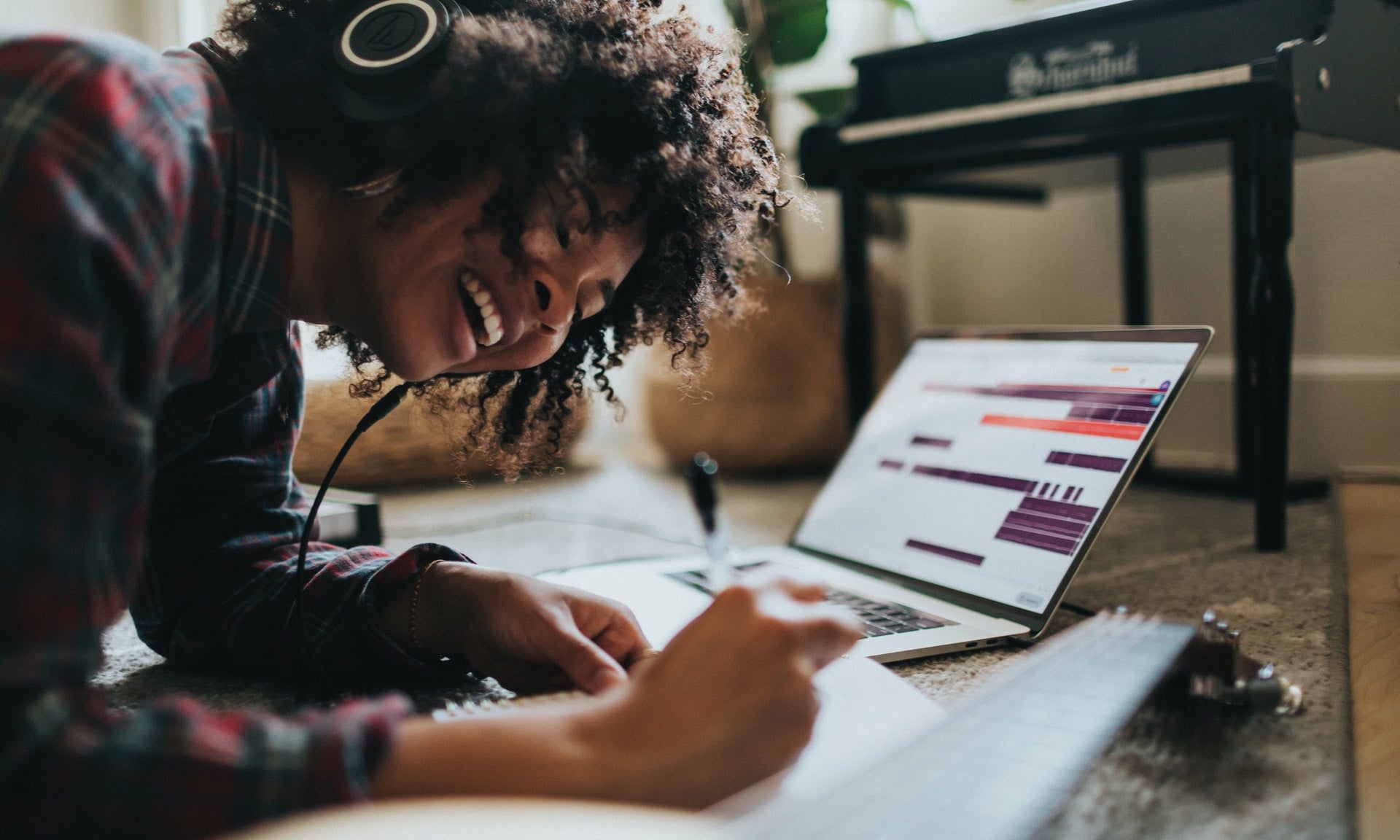In a previous post, we shared some life lessons from biographies of Teddy Roosevelt, Steve Jobs, and other iconoclasts. Another article explained how being a bibliophile can enhance your evening routine. In this week's piece, you're about to learn some techniques that will help you retain and recall more of what you learn from every book you read from today onward.
- Slow Down and Read Deeply
In her brilliant book Reader Come Home, Maryanne Wolf wrote, “Do you, my reader, read with less attention and perhaps even less memory for what you have read? Do you notice when reading on a screen that you are increasingly reading for key words and skimming over the rest? Has this habit or style of screen reading bled over to your reading of hard copy? Do you find yourself reading the same passage over and over to understand its meaning?”
Later, she proposes that the simplest step in redeveloping “the cerebral patience to plow through a long and demanding article or book” is to do it more. Her second piece of sage advice is to look at your reading for pleasure through a different lens than you’d view short pieces that you’d use to inform a work presentation. In other words, don’t come in with an aim of getting through a certain number of pages or chapters as quickly as possible. Neither should you hunt for key phrases as you would if you were researching the text for a desired outcome. Instead, start reading for its own pleasure and try to get completely lost in the characters and plot. This can lead to you getting into a state of deep reading, which Wolf defines as “connecting what we know to what we read, what we read to what we feel, what we feel to what we think, and how we think to how we live out our lives in a connected world.”
- Tab, Highlight, and Take Handwritten Notes
There can be occasions when you need to extract several meaningful takeaways from a certain book, or even a whole stack of them. This could be when you’re trying to master a new hobby, find evidence to support a grad school thesis, or justify the purchase price of a self-help text. In which case, you’ll need a different method to the emotionally-involved and fully present deep reading mentioned earlier in this article.
Spending a few bucks on colored tabs and assigning red, green, blue, and so on to a different key theme is a good way to begin. If you use an e-reader, it might allow you to take notes, or if, like me, you’re more old school, try taking your time with handwritten notes in the margins. Want to go one better? Make brief reminders to yourself on colored Post-its or flags that you can stick onto each page and then remove after you finish the book. Research shows that handwriting notes stimulates the reticular activating system, which is one of the brain’s command centers that governs attention and alertness. The encoding hypothesis suggests that the extra cognitive processing required to read text and then paraphrase key excerpts helps your mind lay down memory tracks.
Studies suggest that this is more effective when done with good old-fashioned pen and paper than on a laptop or tablet. Commenting on a study she co-authored that compared the two methods in Psychological Science, Princeton University professor Pam A. Mueller told NPR, "When people type their notes, they have this tendency to try to take verbatim notes and write down as much of the lecture as they can. The students who were taking longhand notes in our studies were forced to be more selective — because you can't write as fast as you can type. And that extra processing of the material that they were doing benefited them.”
Want to go a bit more high tech than handwritten note taking? You can snap pictures of useful pages using Evernote or OneNote, put them in designated folders, and add relevant tags. Some such apps also allow you to highlight the screenshots. This will help you better order the information and be able to pinpoint the precise parts you need for your project.
Adam Grant, organizational psychologist and bestselling author of Think Again, Originals, and Plan B, believes that discussing a book can also help solidify its main points in your memory. This doesn’t mean you have to join a formalized book club per se, as that’s not for everyone. Even if you tell a friend who has an interest in the genre about what you’re learning, it will help your recall. “Take a 10-minute break, then summarize and share it with someone,” Grant suggested in an Instagram post. “The best way to learn something is to pause and then teach it. You remember it better after you retrieve it – and you understand it better after you explain it.”
- Relearn How to Unitask
One of the temptations when reading is to try and make it part of the multitasking that has become the modus operandi for our society. You might read a couple of paragraphs and pick up your phone to check for notifications. Or maybe you get through half a chapter before turning on the TV. Either will bring to bear an attention cost, and after switching back to your book, you’ll have to spend several minutes calming and refocusing your brain on the words in front of you.
This is one of a key reason that hardcovers and paperbacks can provide a superior reading experience (and even audiobooks, if you’re listening on an old-fashioned MP3 player or a device on which you’re not going to let your attention drift to browsing or scrolling). The trouble with tablets and other electronic devices is that unless they’re a dedicated e-reader or e-note device with no browser or apps, it’s all too tempting to flit back and forth between your book and whatever other digital distractions you can find. Doing so undermines the calming effect that reading should offer and trains you to be unfocused.
There’s no harm in catching up on a page or two of that new novel you picked up when time allows – this is why Stephen King carries a book with him everywhere he goes. But try to also identify a consistent time of day or night when you can put everything else aside and concentrate on at least 30 minutes of solid, uninterrupted reading. This won’t only enrich what you get from each page, but will also condition your mind to chill out, slow down, and settle into the comfort that only a good book can provide. As Roman philosopher, orator, and statesman Cicero once said, “If you have a garden and a library, you have everything you need.”




















